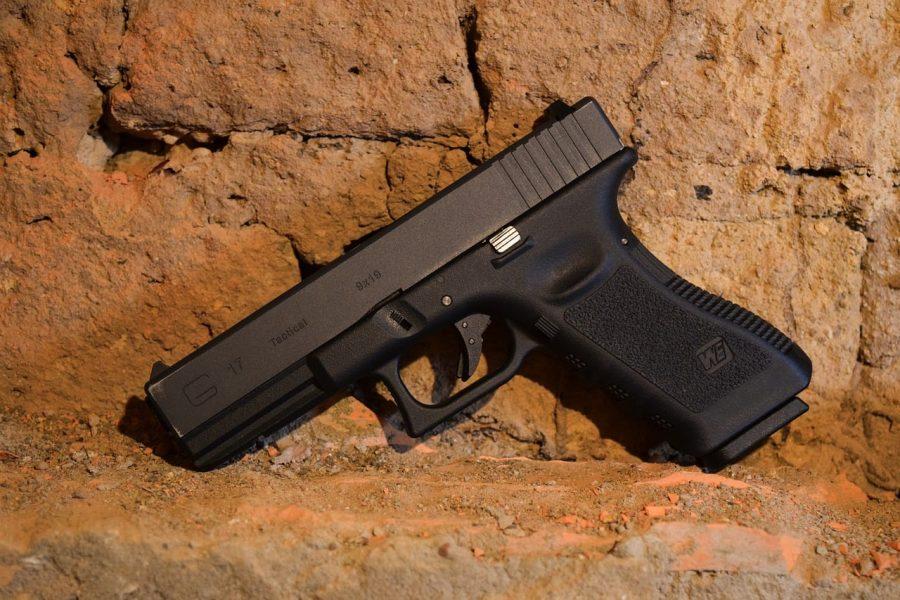Gun control remains a standard part of just about any liberal platform in this country, while for the most part we relegate stances against gun control to conservatives. However, many limitations on gun rights stem from rhetoric that falsely portrays anyone with a mental disability as too dangerous to handle firearms, a precedent also set long ago against racial minorities. In aligning with the mainstream stance, many liberals neglect to analyze the inherent ableism and racism of many gun control measures, both proposed and implemented.
Background checks typically appear as “common sense” requirements in gun control plans, but they rely on the assumption that this country has a fair criminal justice system and a working understanding of mental health. Aside from criminal background, these checks usually also involve psychiatric records.
Unfortunately, mental illness has filled a boogeyman role in gun control rhetoric on both sides, where proponents and opponents alike can blame shootings, violence, and crime on mentally ill people with firearms. In reality, the U.S. Department of Health and Human Services reports that one in five Americans have experienced a mental health issue. People with serious mental illness are actually less likely to commit violence than anyone else, yet are 10 times more likely to be victims of violence. As the national discourse doubles down undue blame on people with mental disabilities or illnesses, gun control measures designed to block their civil rights become more extreme and short-sighted.
In December 2016, Obama created a rule that would take the Social Security Administration’s list of Americans who have a financial representative due to a mental disability, and add these names to the National Instant Criminal Background Check System to bar them from purchasing firearms. It simply does not follow that mental disabilities make someone dangerous, and conditions like dyscalculia or other learning disabilities that require an assistant to manage finances have no bearing on firearm competence or safety. Activists from the Autistic Self-Advocacy Network have spoken out against policies like this which unfairly condemn people who are disproportionately victims of violence rather than perpetrators.
Many of today’s gun control laws have their roots in the late 1960s, where they were passed as a direct response to the Civil Rights Movement. As Governor of California, Ronald Reagan passed the Mulford Act in 1967, banning open-carry of loaded weapons just two months after the Black Panthers led a demonstration in Sacramento encouraging black people to arm themselves against racism. The next year, the federal government passed the Gun Control Act of 1968 to restrict gun sales and require licenses, supported even by the National Rifle Association at the time. Many politicians openly referred to black gun owners as an impetus for tighter regulation, using a minority scapegoat much like today.
Enforcement of gun control laws today still tends to disproportionately impact minorities. For example, according to research by Jeffrey Fagan at Columbia University Law School, 90 percent of the hundreds of thousands of New Yorkers stopped and frisked in 2012 were black or Latino, even though it was more likely to find guns on white people. Based on research from the Vera Institute of Justice, this double standard also applies to criminalization of racial minorities for drug crimes, which, alongside over-representative conviction, recidivism and incarceration rates, suggests that America’s criminal justice system stacks its War on Drugs against racial minorities every step of the way. When we decide who can own guns based on criminal records, but convict and imprison certain racial groups disproportionate to others, we disarm and disenfranchise American citizens using the same systemic biases.
In practice, gun control in America has served to further marginalize minorities, especially people of color and those with disabilities. While we rightfully fear the possibility of a national Muslim registry used to strip Americans of civil rights, we seem unfazed by the prospect of one for Americans with disabilities, even when Obama actually did set such a dangerous project in motion. Luckily, the rule was overturned last month, but ableist rhetoric still runs rampant in the national discourse on gun control. Alongside racial injustice in America’s implementation of gun control, both historically and today, it seems like politicians, the media and the public all seem too willing to sweep the well-being of disabled Americans under the rug for the sake of a preordained agenda, forgetting to critically reexamine whether doing so reinforces stigma and betrays the people whose rights are actually most at risk.






